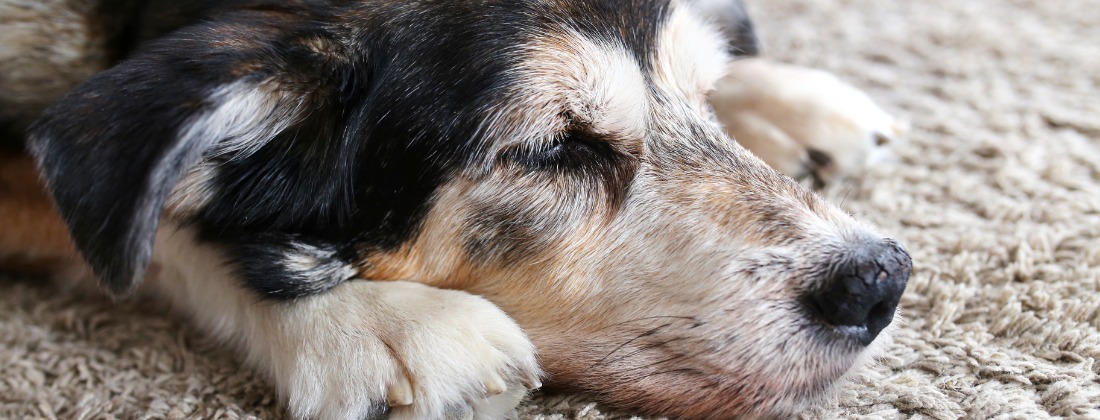Lethargy (low energy) in dogs
Overview
- Lethargy (being low in energy), is a vague symptom that can point towards many different problems.
- Lethargy can be mild, serious or in some circumstances, come and go.
- A full list of conditions that cause lethargy would be very long so this article covers the most common.
- Always contact your vet for advice if your dog seems lethargic, or ‘not quite right’.
Causes of lethargy
Most medical conditions can cause lethargy, so it’s impossible to write a complete list of possible causes. However, some common examples include:
- Infections - tend to cause a xxx high temperature and lethargy.
- Obesity - overweight dogs tend to feel lethargic and move around less.
- Pain - anything that causes pain or discomfort (for example arthritis) is likely to make your dog feel lethargic.
- Heart disease - low energy is a common symptom of heart disease in dogs.
- Anaemia (low numbers of red blood cells) - anything that causes anaemia is likely to make your dog feel much less active and very tired after exercise.
- Kidney disease
- Liver disease
- Hormone problems - hormonal problems such as diabetes, Cushing’s disease, and hypothyroidism can cause extreme lethargy.
- Certain medicines - always speak to your vet if you notice any side effects after giving a prescribed medicine.
- Poisons
It’s important to understand that there are many other causes of lethargy aside those listed above.
When to contact your vet
Always contact your vet for advice if your dog seems low in energy, or not quite themselves. Low energy can be caused by many different conditions ranging from minor to serious, so it’s always better to be safe than sorry. It’s important not to force your dog to do anything they don’t want to do if they seem lethargic, for example, don’t force them to go for a walk or play.
Published: April 2021
Did you find this page useful?
Tell us more
Please note, our vets and nurses are unable to respond to questions via this form. If you are concerned about your pet’s health, please contact your vet directly.
Thank you for your feedback
Want to hear more about PDSA and get pet care tips from our vet experts?
Sign up to our e-newsletter
Written by vets and vet nurses. This advice is for UK pets only. Illustrations by Samantha Elmhurst.


